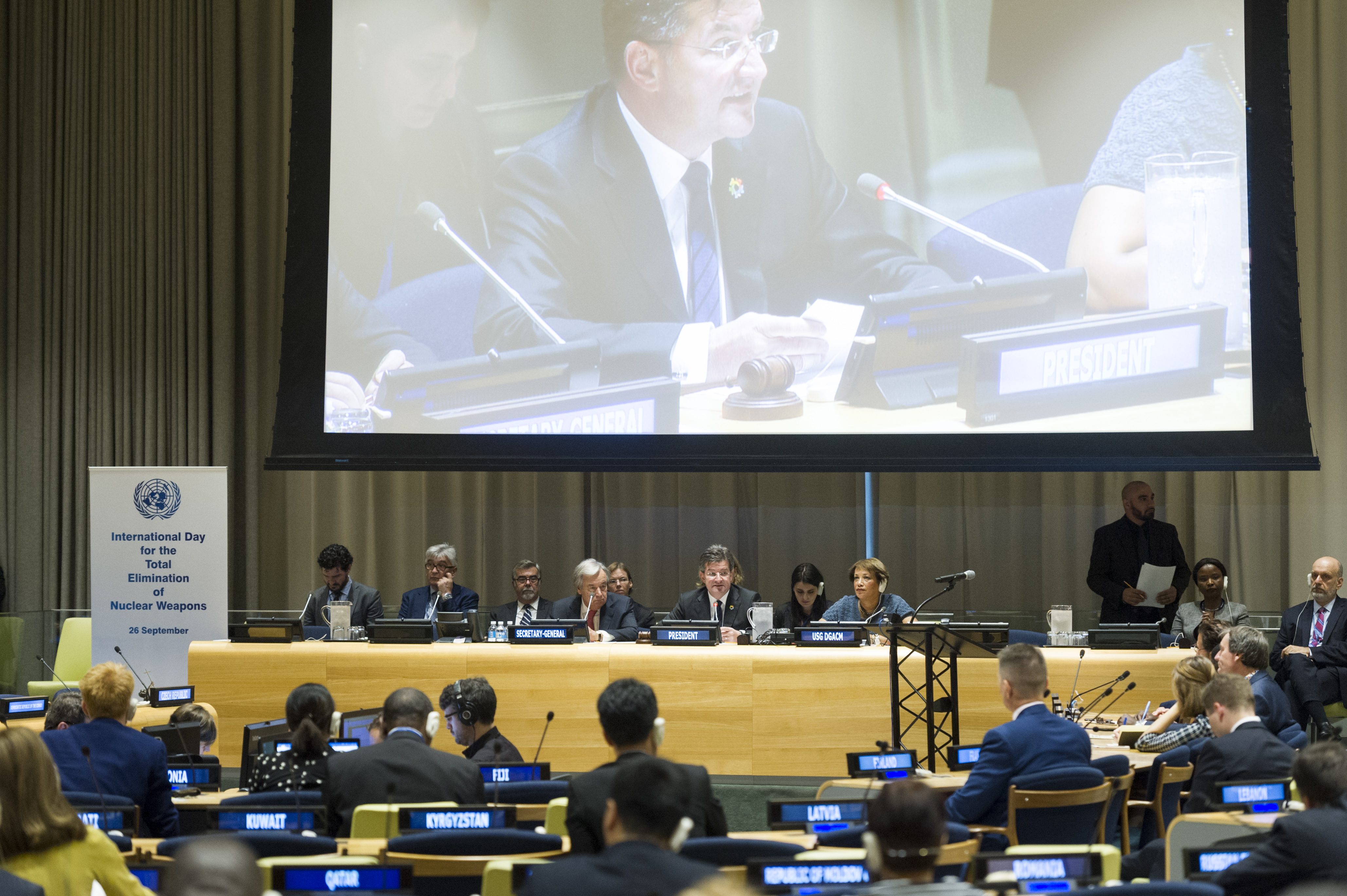High-level Plenary Meeting: International Day for the Total Elimination of Nuclear Weapons

– As delivered –
Statement by H.E. Mr. Miroslav Lajčák, President of the 72nd Session of the UN General Assembly, at the High-level Plenary Meeting: International Day for the Total Elimination of Nuclear Weapons
Secretary-General, Excellencies, Distinguished Delegates, Ladies and Gentlemen.
It is my honor to welcome you all here. In particular, I want to thank those of you who have travelled to be with us. This clearly demonstrates your commitment to this important issue.
Today marks the International Day for the Total Elimination of Nuclear Weapons. I am glad to see so many delegations represented here at a high level. This is a sign that our vision of a nuclear-free world is as clear as ever.
Since the declaration of the International Day, in 2013, some things have changed. Others have not. It is important to look at both.
One major thing that has not changed in the past four years is the fact that nuclear weapons are still part of our world.
Thousands of nuclear warheads continue to exist. They are being stored across three different continents. In fact, more than half of the world’s population lives in countries which have nuclear capabilities, or are member of nuclear alliances.
The effects of nuclear weapons are almost unimaginable. I say “almost”, because, unfortunately, some people have experienced them. We have seen the photographs of the destruction. We have heard the testimonies of survivors. We have been told about the long-term irreparable damage to people, and the environment around them.
Since the world was first exposed to nuclear weapons, we have developed norms against their testing and proliferation. The objective has been to further the goal of achieving nuclear disarmament. But when nuclear weapons exist, so too does the threat of their use. And this has not changed. It has been around since the UN was first established.
We can live in a nuclear-free world, as long as we all believe that it is possible. And as long as we are all willing to work to make it possible.
Some things have, however, changed. Unfortunately, not all for the better. Since the General Assembly adopted the resolution to establish this International Day, the world has witnessed three nuclear tests.
One nuclear test is one too many. Six nuclear tests in the 21st Century is, frankly, alarming. So too is the reckless rhetoric we are witnessing. It can bring us all to the verge of a cliff, which we cannot afford to fall off.
We must also acknowledge a recent change of dynamics. For example, last week the Treaty on the Prohibition of Nuclear Weapons was opened for signature. Not everyone agrees that this was the right step to take. But it demonstrates a determination, which is beyond dispute. We must welcome the resolve of countries, and leaders, to maintaining momentum around this important issue.
This brings me back around, to something else that hasn’t changed: the almost-universal wish for a nuclear-free world.
As President of the General Assembly, I will call for efforts to ensure that the Comprehensive Test Ban Treaty enters into force as soon as possible. I will closely follow the work of the First Committee of the General Assembly. I will support efforts to continue the discussions we saw in the run-up to the adoption of the Treaty on the Prohibition of Nuclear Weapons. We must ensure that these discussions address the different views of Member States. Our success depends on how inclusive the process is.
Many of you have been dedicated to this issue for decades. I look forward to engaging with you over the coming year, and learning from your experiences and expertise.
Excellencies, Ladies and Gentlemen,
Nuclear weapons are not, simply, a fact of life. We should not accept them as such.
We can live in a nuclear-free world, as long as we all believe that it is possible. And as long as we are all willing to work to make it possible.
The International Day acts as an annual reminder of the work we have left to do.
So, I thank you again for joining us today, as we recommit to this work.
And I will now hand the floor over to the Secretary-General of the United Nations, His Excellency, António Guterres.